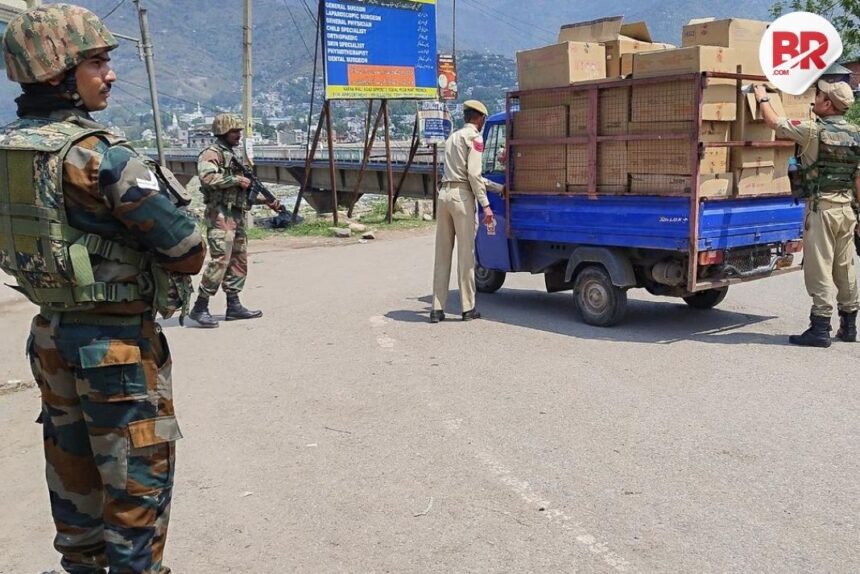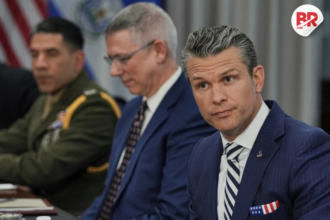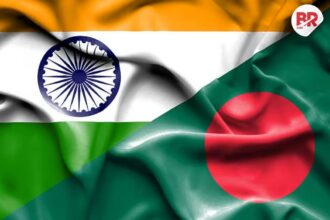
Pahalgam Attack: Pakistan Seeks Russia’s Help Amid Crisis
The Pahalgam terror attack shook the region to its core, leaving countless innocent lives lost and tensions at an all-time high.
Pakistan, in an unprecedented move, has reportedly sought Russia’s help to ease the escalating crisis with India. But while Pakistan seeks external intervention, India’s response remains steadfast: no more appeasement, only concrete actions against terrorism.

The Pahalgam attack was no random act of violence. It was an act of terror, a brutal reminder of the ongoing threat that India faces from cross-border terrorism.
The attack, which claimed innocent lives, reignited old wounds between India and Pakistan, stirring outrage in India and drawing condemnation from across the globe.
For India, it was yet another painful chapter in a history marred by violence from across its western border. For Pakistan, it was a moment of reckoning, as it now faces the uncomfortable spotlight of international scrutiny—accusations of harboring and supporting terror groups have never been more pronounced.
It’s a crisis they can’t sweep under the rug.
Pakistan Turns to Russia: A Desperate Plea?
Reports suggest that Pakistan has reached out to Russia in hopes of de-escalating the situation. The question is: Why Russia? Russia has long maintained a delicate balance, cultivating diplomatic relationships with both India and Pakistan.
Its position as a neutral power with influence over both sides has made it a potential mediator in this high-stakes conflict.
But Russia’s role is more than just symbolic. With ties to both countries—especially strategic partnerships with India—Russia could play a significant role in ensuring tensions don’t boil over.
The reality, though, is that Russia’s involvement will only go so far. While it may offer diplomatic cover, the real issue at hand is whether Pakistan is willing to take concrete steps to curb the cross-border terrorism that India has long accused it of enabling.
🚨 Pakistan Drops Nuclear Warning
In a chilling threat, Pakistan’s envoy to Russia has hinted at going nuclear if war breaks out with India
Ambassador Muhammad Khalid Jamali told RT that Pakistan would respond with “full spectrum of power conventional and nuclear” if tensions… pic.twitter.com/CBI5yFbCZ8
— Nabila Jamal (@nabilajamal_) May 4, 2025
Why Russia’s Involvement Matters
Russia’s experience in mediating international disputes is well-documented. As a global power, it has successfully navigated similar high-stakes situations, including in the Middle East and Central Asia.
But while Russia’s influence can be helpful, it’s not a magic fix. Balancing the interests of both India and Pakistan will require nuanced diplomacy, something that will be tested to the limit in this case.
For India, there’s no room for half-measures. While Russia’s involvement could help create a space for dialogue, India will demand tangible action from Pakistan before any diplomatic talks take place.
The years of cross-border attacks and failed peace initiatives have hardened India’s position. Russia may be able to facilitate a conversation, but it won’t be able to dictate the terms.
India’s Response: Firm and Unyielding
India’s response to Pakistan’s plea for mediation has been clear: Any dialogue is contingent on Pakistan taking verifiable action against terrorist groups operating on its soil.
While diplomatic engagement is always a possibility, India has consistently maintained that it won’t engage in meaningless talks that lead nowhere.
The message is simple: No more empty words, no more promises that go unfulfilled. India is seeking a concrete commitment from Pakistan to dismantle terrorist networks and stop cross-border terrorism. The Indian public and government have no appetite for peace talks unless there’s genuine change on the ground.
Also Read Tensions Soar: What Modi and the Air Chief Discussed After Pakistan’s Nuclear Warning
A Delicate Balancing Act: The Road Ahead
The Pahalgam attack has, unfortunately, become a flashpoint in an already volatile region. But it also presents an opportunity—an opportunity for both nations to re-evaluate their path. Pakistan’s request for Russia’s help isn’t just a plea for intervention; it’s a recognition of the complexities of this conflict.
De-escalation will require patience, dialogue, and above all, transparency. It will require Pakistan to confront the reality of its support for terrorism, and India must remain resolute in its demands for justice.
The Pahalgam attack has brought India and Pakistan to a crossroads, one that could either lead to further bloodshed or offer a chance for reconciliation.
As the world watches, the hope is that both nations choose the latter. Russia’s role may be crucial in brokering peace, but the path to lasting stability can only be walked with genuine effort and commitment from both sides.
And for India, the message remains clear: no compromise on terrorism.
Also Read India Just Sent a Message to Pakistan — And It Wasn’t in a Letter












